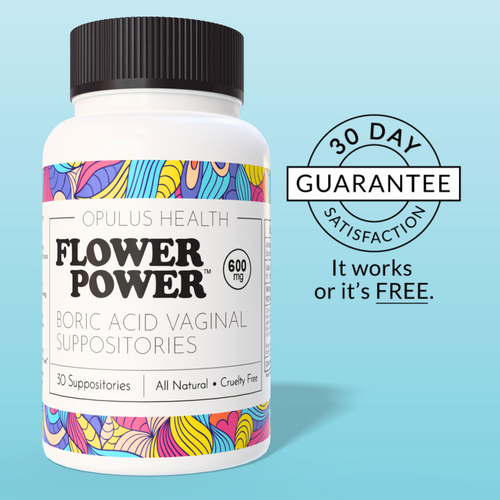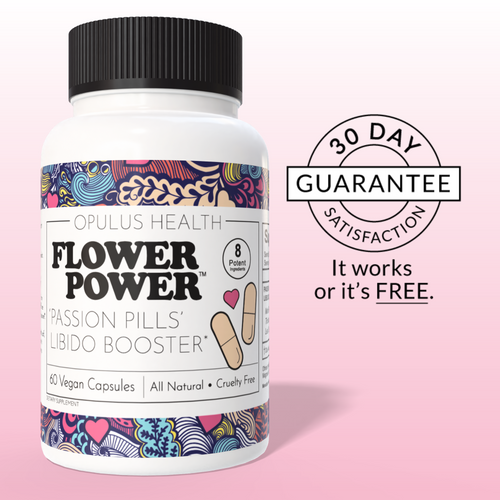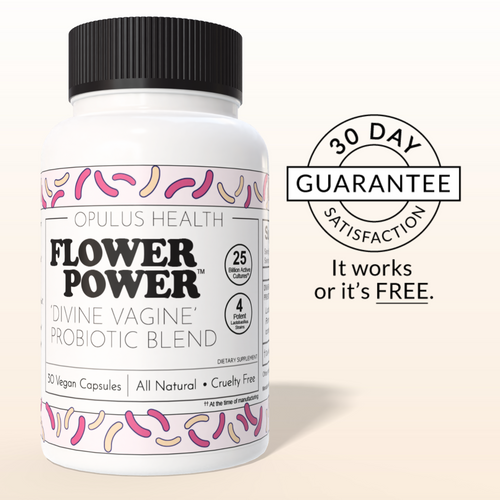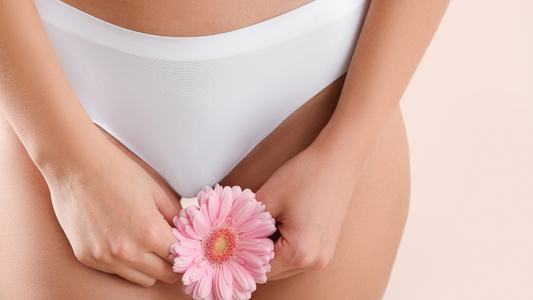Why Stress Shows Up in Intimate Health
Most people know stress can cause headaches, fatigue, or trouble sleeping—but fewer realize it also affects intimate wellness. Chronic stress raises cortisol levels, disrupts hormones, and even reduces blood flow, all of which can lead to vaginal dryness, discomfort, and decreased arousal.
Because vaginal tissue is highly responsive to hormonal balance and circulation, stress can quickly create a ripple effect that impacts moisture levels and overall comfort. The good news? By understanding the stress–vaginal health connection, women can take simple, natural steps to restore balance and protect their intimate wellness.
The Biology of Stress and Vaginal Moisture
Vaginal lubrication is not just about arousal—it’s the result of a finely tuned system involving hormones, circulation, and microbiome health. When stress enters the picture, this delicate balance can be disrupted in several ways:
Cortisol’s Role in Hormonal Imbalance
When you’re under stress, your body releases cortisol, the primary “stress hormone.” While short bursts of cortisol are natural, chronic stress keeps levels elevated, which can interfere with estrogen and progesterone production. These two hormones are crucial for maintaining vaginal moisture: estrogen keeps tissues thick, elastic, and hydrated, while progesterone supports tissue repair and balance. When cortisol suppresses these hormones, the vaginal lining can thin, lose elasticity, and produce less natural lubrication.
Reduced Arousal and Blood Flow
Stress activates the body’s fight-or-flight response, designed for survival. In this state, blood flow is redirected toward vital organs like the heart and muscles—away from the pelvic region. This reduced circulation makes it more difficult for the vagina to produce natural lubrication during arousal, often leading to discomfort or dryness during intimacy.
The Microbiome Connection
Stress doesn’t just affect hormones—it also impacts the gut and vaginal microbiome. Cortisol and nervous system imbalance can alter healthy bacteria populations, particularly Lactobacillus, which help maintain an acidic pH (between 3.8–4.5). A disrupted microbiome can increase the risk of irritation, infections, and dryness. In other words, stress weakens one of the body’s natural defenses for keeping vaginal tissue comfortable and hydrated.
Together, these biological effects explain why women often notice vaginal dryness during stressful periods—even if their hormones are otherwise normal.
Everyday Stress Triggers That Impact Vaginal Moisture
Stress doesn’t always come from dramatic life events—it often builds quietly from everyday habits and pressures. Understanding the triggers can help women connect the dots between their lifestyle and intimate health.
Work and Career Pressures
Tight deadlines, long hours, and high workloads keep cortisol levels elevated, disrupting hormone balance and hydration. Many women notice changes in their cycle or vaginal comfort during periods of intense professional stress.
Relationship and Emotional Stress
Conflict with a partner or emotional tension can lower libido and contribute to vaginal dryness. Because stress reduces blood flow to the pelvic area, even arousal may not produce enough natural lubrication.
Lack of Sleep
Sleep is when the body resets hormone levels. Inadequate rest raises cortisol and lowers estrogen, creating the perfect storm for vaginal dryness and irritation.
Overexercising or Poor Nutrition
While movement is healthy, excessive exercise without proper recovery depletes energy reserves and hormones. Similarly, diets low in healthy fats, hydration, and phytoestrogens (like flaxseed or soy) can make dryness worse.
Health-Related Stress
Managing chronic illness, medications, or even ongoing infections places stress on the body that shows up in vaginal health.
Natural Ways to Reduce Stress for Better Vaginal Health
Because stress is such a key factor in vaginal dryness, reducing it naturally is one of the most effective ways to restore balance. The good news? Small, consistent lifestyle changes can make a big difference in both your mental well-being and intimate health.
Mind-Body Practices
Techniques like yoga, meditation, and deep breathing calm the nervous system and lower cortisol levels. Yoga in particular improves circulation to the pelvic region, which helps support natural lubrication. Even 10 minutes of guided breathing or mindfulness practice daily can reduce stress’s impact on hormones.
Movement and Exercise
Moderate, regular exercise is one of the best natural stress relievers. Activities like walking, swimming, or strength training boost endorphins (your “feel-good” hormones) and support healthy blood flow to vaginal tissues. Unlike overexercising, balanced movement regulates cortisol instead of raising it.
Prioritizing Sleep Hygiene
Quality sleep gives your body the time it needs to reset hormone production. Simple practices like setting a bedtime routine, limiting screen time before bed, and keeping a cool, dark bedroom can significantly improve rest—and, in turn, vaginal hydration.
Journaling and Mindfulness
Writing down thoughts and practicing mindfulness can lighten your mental load. Journaling not only helps process emotions but also reduces rumination, lowering everyday stress. This emotional release supports hormonal balance and creates space for improved intimacy.
Diet and Supplements That Support Stress + Vaginal Moisture
Managing stress isn’t only about lifestyle practices—it’s also about nourishing the body with the right nutrients. What you eat and the supplements you choose can directly impact both your ability to handle stress and your vaginal hydration levels.
Magnesium-Rich Foods
Magnesium is often called the “relaxation mineral.” It helps regulate cortisol, supports muscle relaxation, and improves sleep quality. Leafy greens like spinach and kale, pumpkin seeds, and almonds are excellent sources. By calming the nervous system, magnesium indirectly supports vaginal tissue health.
Omega-3 Fatty Acids
Stress creates inflammation in the body, which can interfere with circulation and hydration. Omega-3 fatty acids—found in salmon, chia seeds, walnuts, and flaxseeds—reduce inflammation and improve blood flow to delicate tissues. This improved circulation helps restore natural lubrication.
Probiotics for Balance
Stress is notorious for disrupting the gut and vaginal microbiomes, making tissues more vulnerable to dryness and irritation. Probiotics, whether through foods like yogurt, kefir, and sauerkraut or as supplements, help restore this balance. A thriving Lactobacillus population maintains a healthy pH and supports ongoing vaginal comfort.
She Juicy Vaginal Moisture Supplement
When stress feels unavoidable, consistency is key. Flower Power’s She Juicy Vaginal Moisture Supplement combines Slippery Elm Bark with botanicals to hydrate vaginal tissue from within. Unlike quick fixes, She Juicy works daily to restore long-term comfort and resilience, even during high-stress seasons.
By combining stress-friendly foods, microbiome support, and targeted supplementation, women can create a solid foundation for both emotional balance and intimate wellness.
FAQ: Stress and Vaginal Dryness
Can stress really cause vaginal dryness?
Yes. Chronic stress raises cortisol levels, which disrupt estrogen balance and reduce blood flow to the pelvic area—two factors essential for natural vaginal lubrication.
How do I know if my vaginal dryness is caused by stress or hormones?
If symptoms flare up during high-stress periods but improve when you relax, the dryness is likely stress-related. However, hormonal shifts (like menopause, postpartum, or birth control) can also play a role. A gynecologist can help you identify the root cause.
What’s the fastest way to relieve stress-related vaginal dryness?
For immediate comfort, use a natural, pH-balanced lubricant to reduce irritation and support intimacy. For long-term results, combine stress-management practices with hormone-free supplements like She Juicy, which hydrate vaginal tissue from within.
Can reducing stress alone restore vaginal moisture?
In some cases, yes—especially if stress is the main trigger. But many women find the best results come from a combined approach: stress reduction, hydration, nourishing foods, and natural supplements.
Are Flower Power products safe for women who deal with frequent stress?
Absolutely. Flower Power products are hormone-free, plant-based, and pH-balanced, making them safe for everyday use—even during stressful times when your body needs extra support.
Conclusion
Stress is a part of life—but vaginal dryness doesn’t have to be. By combining mindful stress management with nourishing foods, hydration, and natural support, you can protect your intimate health and restore lasting comfort.
Flower Power’s She Juicy Vaginal Moisture Supplement makes it easy to give your body the hydration and botanical nourishment it needs from the inside out—without hormones or harsh chemicals.
Reclaim your balance, boost your confidence, and feel naturally comfortable again.
Explore She Juicy today and make vaginal wellness part of your everyday self-care.

















